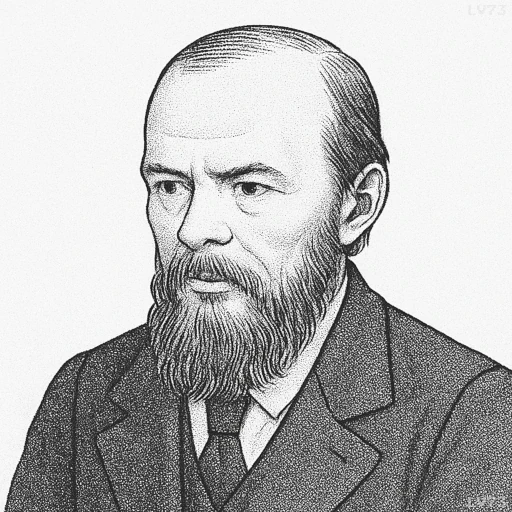“There is no subject so old that something new cannot be said about it.”

- November 11, 1821 – February 9, 1881
- Born in the Russian Empire
- Novelist, philosopher
table of contents
Quote
“There is no subject so old that something new cannot be said about it.”
Explanation
Dostoevsky’s quote emphasizes the endless potential for discovery and innovation within human thought and experience. He suggests that even the most ancient or well-worn subjects—whether they be philosophical, artistic, or existential—are never completely exhausted of new insights or interpretations. This statement speaks to the infinite complexity of the human condition, where even familiar themes such as love, suffering, or morality are perpetually subject to re-examination and fresh perspectives. Dostoevsky, as a writer, frequently explored age-old questions about the nature of good and evil, faith and doubt, and the tension between freedom and fate, yet his works continue to offer new insights into these enduring topics. The quote suggests that no matter how often a subject has been explored, there is always the potential for a deeper understanding or a new way of framing it.
This idea reflects Dostoevsky’s belief in the richness and depth of the human experience. In many of his works, such as The Brothers Karamazov or Notes from Underground, he revisits eternal questions with characters who face these issues in new and often innovative ways. For example, in Crime and Punishment, Dostoevsky re-examines the moral dilemmas of a young man who believes that certain individuals are above traditional moral laws. Despite the subject matter being rooted in the age-old conflict of good versus evil, Dostoevsky brings new light to it through the psychological complexity of his characters, showing that even established themes can yield fresh insights depending on the perspective from which they are approached.
In the modern world, this quote remains particularly relevant in the context of intellectual discourse and artistic creativity. As knowledge and understanding evolve, new tools and methods allow for previously unexplored dimensions of old subjects. Science, for instance, continues to shed new light on ancient mysteries, from the nature of the universe to the workings of the human brain. In literature, postmodernism has breathed new life into classic themes, while contemporary philosophers continue to revisit fundamental questions of existence and meaning in light of modern challenges like technological advancement, globalization, and social change. The idea that “something new” can always be said about an old subject encourages a mindset of perpetual inquiry—a belief that, no matter how familiar or repetitive a topic may seem, there is always room for growth and re-invention, both intellectually and creatively.
Would you like to share your impressions or related stories about this quote in the comments section?

